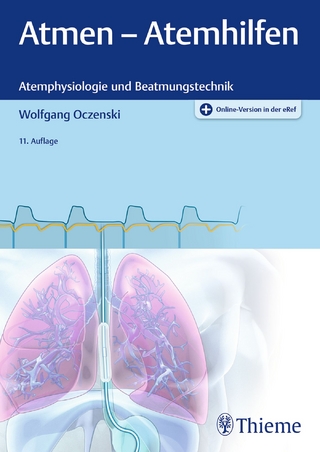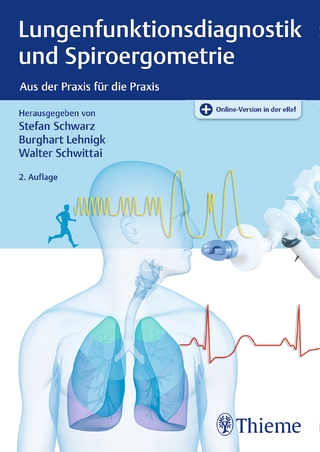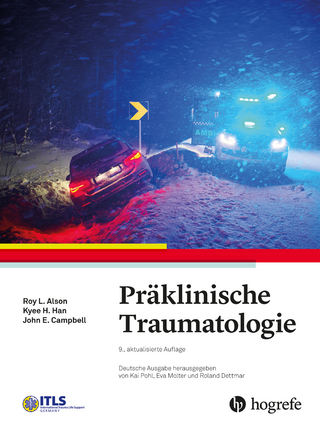
Pathophysiology of Pulmonary Hypertension
Morgan & Claypool Publishers (Verlag)
978-1-61504-760-4 (ISBN)
Pulmonary hypertension is a life-threatening disease with no known cure. Here we provide a concise yet comprehensive review of the current knowledge about the pathophysiology of pulmonary hypertension (PH). The underlying signaling mechanisms involved in pulmonary vascular remodeling and the exaggerated vascular contractility, two characteristic features of pulmonary hypertension, are discussed in depth. The roles of inflammation, immunity, and right ventricular function in the pathobiology of pulmonary hypertension are discussed. The epidemiology of the five groups of pulmonary hypertension (World Health Organization classification; Nice, 2013) is also briefly described. A clear understanding of our current knowledge about the pathogenesis of PH is essential for further exploration of the underlying mechanisms involved in this disease and for the development of new therapeutic modalities. This book should be of interest to researchers and graduate students, both in basic research and in clinical settings, in the fields of pulmonary vascular biology and pulmonary hypertension.
Yuansheng Gao, Ph.D., received his Ph.D. in Physiology (1990; advisor: Paul M. Vanhoutte) from Mayo Graduate School, Rochester, Minnesota and postdoctoral training in Professor Vanhoutte's laboratory at the Baylor College of Medicine, Houston, Texas (1990-1992). He worked in Professor J. Usha Raj's laboratory from 1992 to 2002 as an Adjunct Assistant/Associate Professor at Harbor-UCLA Medical Center, Los Angeles, California. Since 2002 he serves as Professor of Pathophysiology in Peking University Health Science Center, Beijing, China. He has been an Honorary Professor of Department of Pharmacology and Pharmacy in the University of Hong Kong, China since 2014. He has served as the council member of Asian Society for Vascular Biology since 2005 and the review editor for the journal Frontiers in Vascular Physiology since 2011. He has worked on the signaling transduction of pulmonary and coronary vasculature for nearly 30 years and has published over 90 original research and review articles in this field. J. Usha Raj, M.D., is the Anjuli S. Nayak Professor of Pediatrics, University of Illinois, Chicago, Illinois. She was the Head of Pediatrics at UIC from 2008 to 2015 and Chief of Neonatology at Harbor-UCLA from 1995 to 2008. Dr. Raj is nationally and internationally known as a clinician-scientist for her research on the mechanisms involved in the development of pulmonary hypertension. Her work has been funded by the National Institutes of Health (NIH) for over 32 years. She is a co-investigator on grants funded by the NIH and Center for Medicare and Medicaid that are designed to improve care for the underserved pediatric population in Chicago. She has published over 165 peer-reviewed scientific manuscripts in high-quality journals. She has received numerous awards from International Scientific Societies, including the Scientific Recognition and Distinguished Achievement Awards from the American Thoracic Society and the Julius Comroe Jr. Distinguished Lectureship and election as a fellow to the society by the American Physiological Society. She received an honorary doctorate (honoris causa) from the University of Lausanne in June 2016 in recognition of her many contributions in research and mentorship. She is a member of the World Task Force on Pediatric Pulmonary Hypertension and an advisor to the Pediatric Pulmonary Hypertension network in North America. She has been selected for the U.S. News & World Report Top Doctors list. D. Neil Granger, Ph.D., is Boyd Professor and Head of the Department of Molecular and Cellular Physiology at the LSU Health Sciences Center in Shreveport, Louisiana. His current research is focused on the role of the microcirculation in acute and chronic inflammation, and how risk factors for cardiovascular disease influence microvascular function. Granger has served on the editorial boards of the Heart & Circulation, GI & Liver, and Cell sections of the American Journal of Physiology, as well as Circulation Research, Microcirculation, Shock, Pathophysiology, Free Radical Biology & Medicine, Lymphatic Research and Biology, and Nitric Oxide Biology & Chemistry. He was Editor-in-Chief of Microcirculation and an Associate Editor of the American Journal of Physiology: GI & Liver Physiology. Dr. Granger was a member of the Clinical Sciences-2, Cardiovascular & Renal, and General Medicine-A2 Study Sections and the Gastrointestinal Mucosal Pathobiology Study Sections. He also served on several peer review panels and policy committees for the American Heart Association, the Research Committee of the American Gastroenterological Association, the Board of Directors of the Federation of American Societies for Experimental Biology, and the Physiology Test Committee of the National Board of Medical Examiners. Granger served as President of the American Physiological Society (APS) and the Microcirculatory Society (MCS). He has received several awards and honors for his research, including the APS Bowditch Award, the Distinguished Research Award from the GI Section of the APS, the Landis Award from the US Microcirculatory Society, the Laerdal Award from the Society for Critical Care Medicine, the McKenna Memorial Award from the Canadian Association of Gastroenterology, the Dolph Adams Award from the Society for Leukocyte Biology, the Career of Distinction Award from the Oxygen Society, the Nishimaru-Tsuchiya International Award from the Japanese Microcirculatory Society, the Robert M Berne Lectureship from the APS, and the Benjamin W. Zweifach Award from the US Microcirculatory Society. He was also designated a Highly Cited Investigator by the Institute for Scientific Information. Joey P. Granger, Ph.D., is the Billy S. Guyton Distinguished Professor, Professor of Physiology and Medicine, Director of the Center for Excellence in Cardiovascular Renal Research, and Dean of the School of Graduate Studies in the Health Sciences at the University of Mississippi Medical Center in Jackson, MS. He earned his doctorate from the University of Mississippi School of Medicine in 1983. Dr. Granger currently served as President of the American Physiological Society and is an Associate Editor for Hypertension. He has also served as the Editor of the Council for High Blood Pressure Newsletter and an Associate Editor for News in Physiological Sciences and American Journal of Physiology. He has served as a member of Editorial Boards of American Journal of Hypertension, American Journal of Physiology-Renal, American Journal of Physiology: Regulatory and Integrative Physiology, Journal of CardioMetabolic Syndrome and the Journal of the American Society of Hypertension. He has served on scientific study sections for the American Heart Association (AHA), National Institutes of Health, NASA, and the Veterans Administration. He now serves as chair of the Hypertension and Microcirculation NIH study section. He has received several awards including the E.H. Starling Distinguished Lecture Award, the Bodil M. Schmidt-Nielsen Distinguished Mentor and Scientist Award, and the Bowditch Award from the American Physiological Society (APS), the Dahl Memorial Lecture of the AHA, American Society of Hypertension Young Scholar Award, the International Society of Hypertension Demuth Research Award, Inter-American Society of Hypertension Young Investigator Award, the Regulatory and Integrative Physiology (APS) Young Investigator Award and the Harold Lamport Award (APS) and an Established Investigator Award from the AHA. Granger's research has been continuously funded by the NIH since 1984. His research has focused on the role of the kidneys in the pathogenesis of hypertension, and the role of endothelial and neurohormonal factors in mediating hypertension in animal models of preeclampsia. His laboratory is also investigating the role of the renal endothelin system in salt-sensitive hypertension.
1. Introduction
2. Classification of Pulmonary Hypertension
3. Epidemiology of Pulmonary Hypertension
4. Pathophysiology of Pulmonary Hypertension
5. Mechanisms of Vascular Remodeling in PH
6. Mechanisms of Excessive Pulmonary Vasoconstriction in PH
Concluding Remarks
References
Author Biographies
| Erscheinungsdatum | 08.12.2017 |
|---|---|
| Reihe/Serie | Colloquium Series on Integrated Systems Physiology: From Molecule to Function to Disease |
| Mitarbeit |
Herausgeber (Serie): D. Neil Granger, Joey P. Granger |
| Verlagsort | San Rafael |
| Sprache | englisch |
| Maße | 152 x 229 mm |
| Gewicht | 525 g |
| Themenwelt | Medizinische Fachgebiete ► Innere Medizin ► Pneumologie |
| Studium ► 1. Studienabschnitt (Vorklinik) ► Physiologie | |
| Naturwissenschaften ► Biologie | |
| ISBN-10 | 1-61504-760-3 / 1615047603 |
| ISBN-13 | 978-1-61504-760-4 / 9781615047604 |
| Zustand | Neuware |
| Haben Sie eine Frage zum Produkt? |
aus dem Bereich


